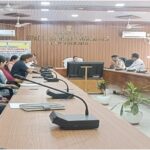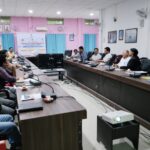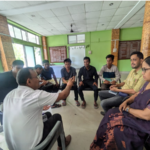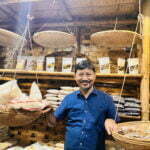India is the 2nd largest producer and consumer of tobacco while as per Global Adult Tobacco Survey 2016-17, 48.2% of the adult population and as per Global Youth Tobacco Survey 2019, 11.9% of children in the age group 13-15 consume tobacco in Assam.Tobacco use in any form heightens the risk of a number of serious non-communicable diseases (NCD’s) like cancer (oropharyngeal, lung, gastro-intestinal and urinary bladder), chronic respiratory diseases, hypertension and heart disease. As per India Global Adult Tobacco Survey (GATS 2016-17), nearly 49% of the adult population in Assam use tobacco in some form or the other while as per the Global Youth Tobacco Survey (GYTS 2019), it was found that 11.9% of school going children in the 13–15-year age group consume tobacco in some form. What is even more worrying is that as per the National Family Health Survey-5, a mind-boggling 51.9% of the adult population of Assam consume tobacco.
Alarmed by the increase in the number of tobacco users and realising that the most effective way to reduce its use is by involving the people and giving it the shape of a mass-movement, DTCC, Jorhat under the leadership of Dr. Bhaktimay Bhattacharjee and ably assisted by a team of dedicated individuals organised a daylong training programme for PRI members from five villages, viz, Bahphala, Baghmora Potia Gaon, Hahpuria Gaon, Kuhum Jugomiya and Teok Sonari Gaon.Through his keynote address as well as his during his in-depth presentation before a gathering of around 70 participants, Dr. Bhattacharjee appealed to them to all and especially the tobacco users to do some serious inward retrospection to realize how this habit is harming their health and urged them to give it up and serve as a role model worthy of emulation by the young generation.

In a welcome departure from the past, DTCC, Jorhat included the process of group discussion and a short speech by the team leader of each group at the end of the training to make the event more inclusive. The groups suggested various ways like IEC campaigns, use of WhatsApp groups, involving prominent personalities, proactive involvement of the women, active anti-tobacco campaigning during the prominent community events etcetera. The organisers expressed their gratitude to the participants and assured them that the actionable suggestions would certainly be implemented to shape the anti-tobacco movement into a pro-active people’s movement for achieving the cherished goals of tobacco-free villages and nurturing a healthy, tobacco-free generation.







